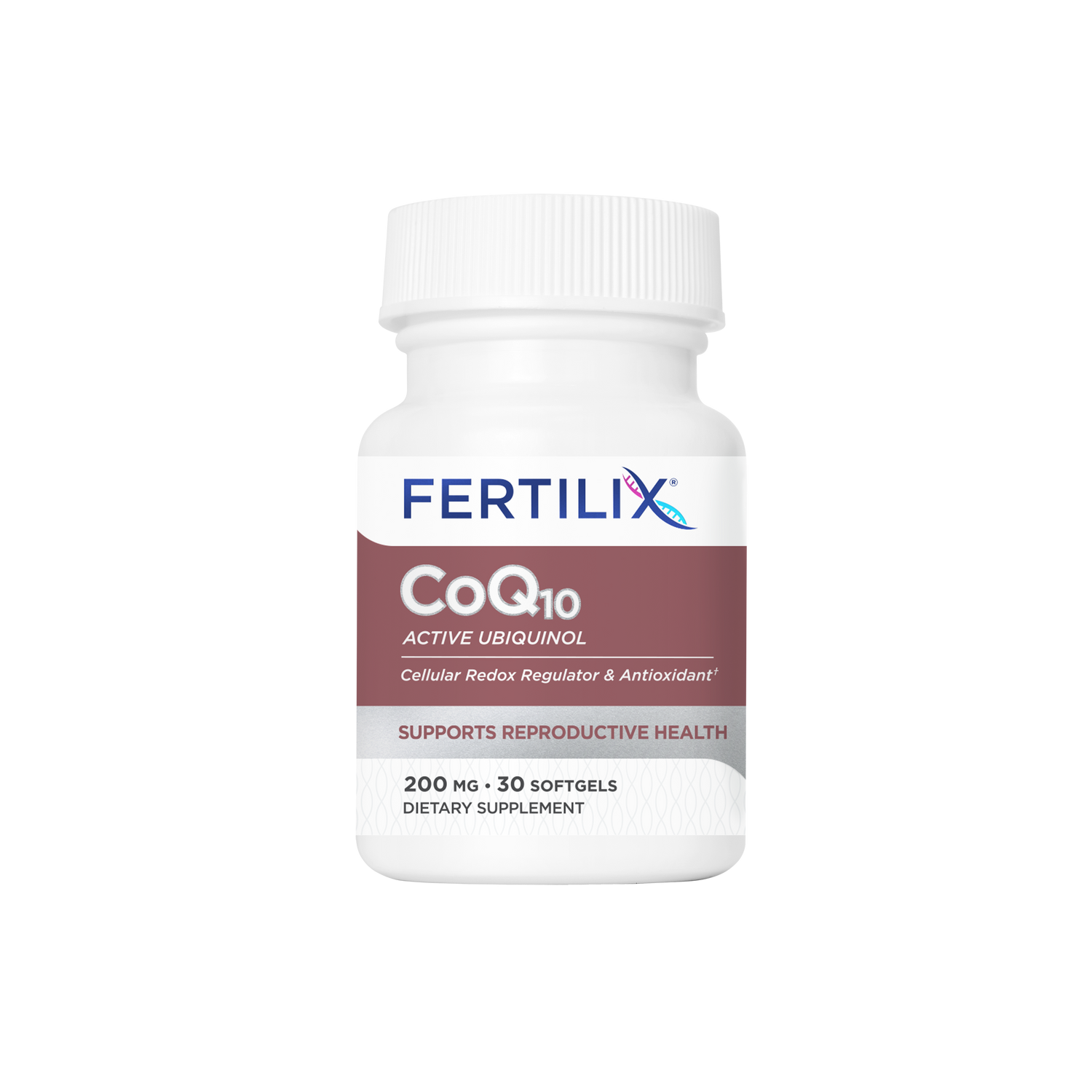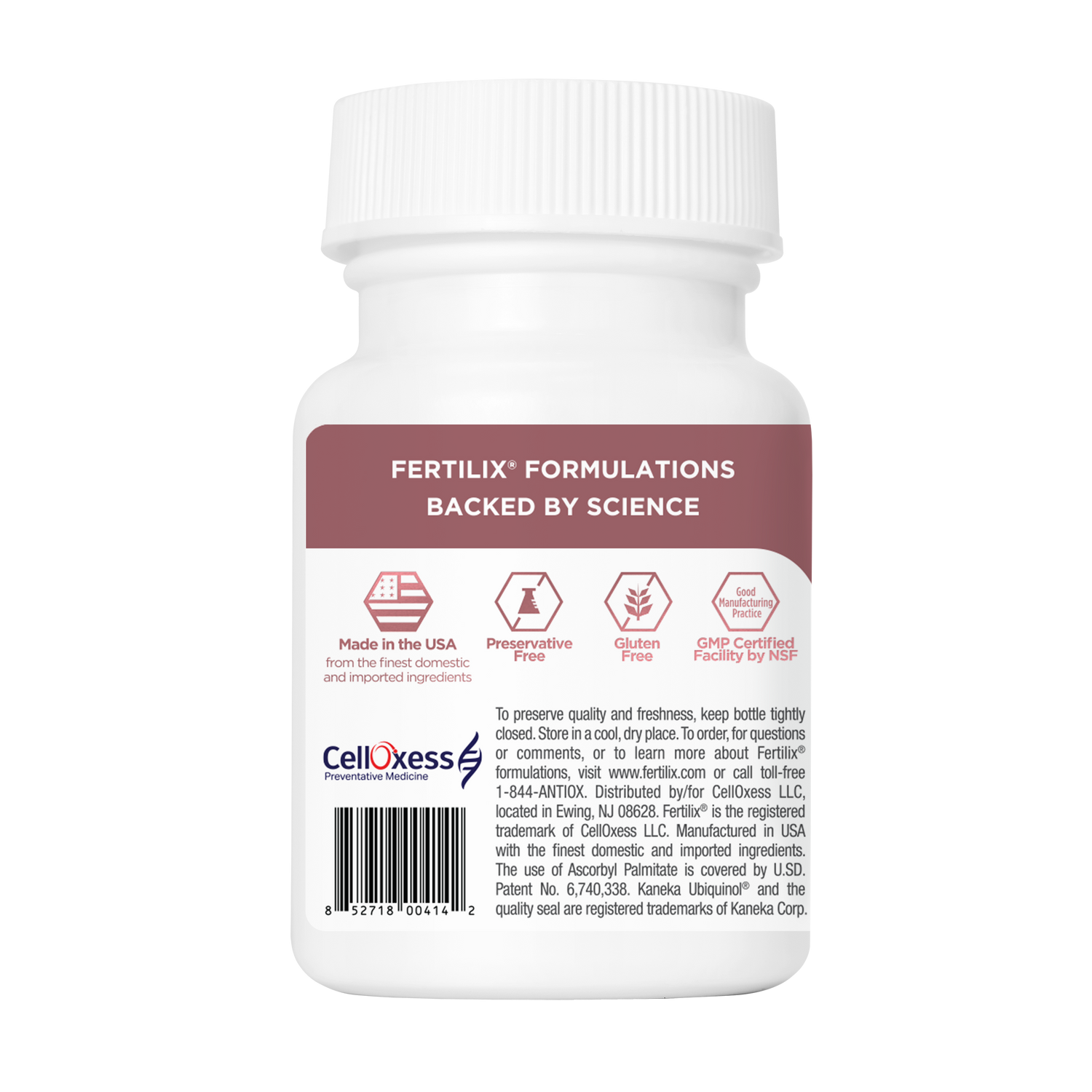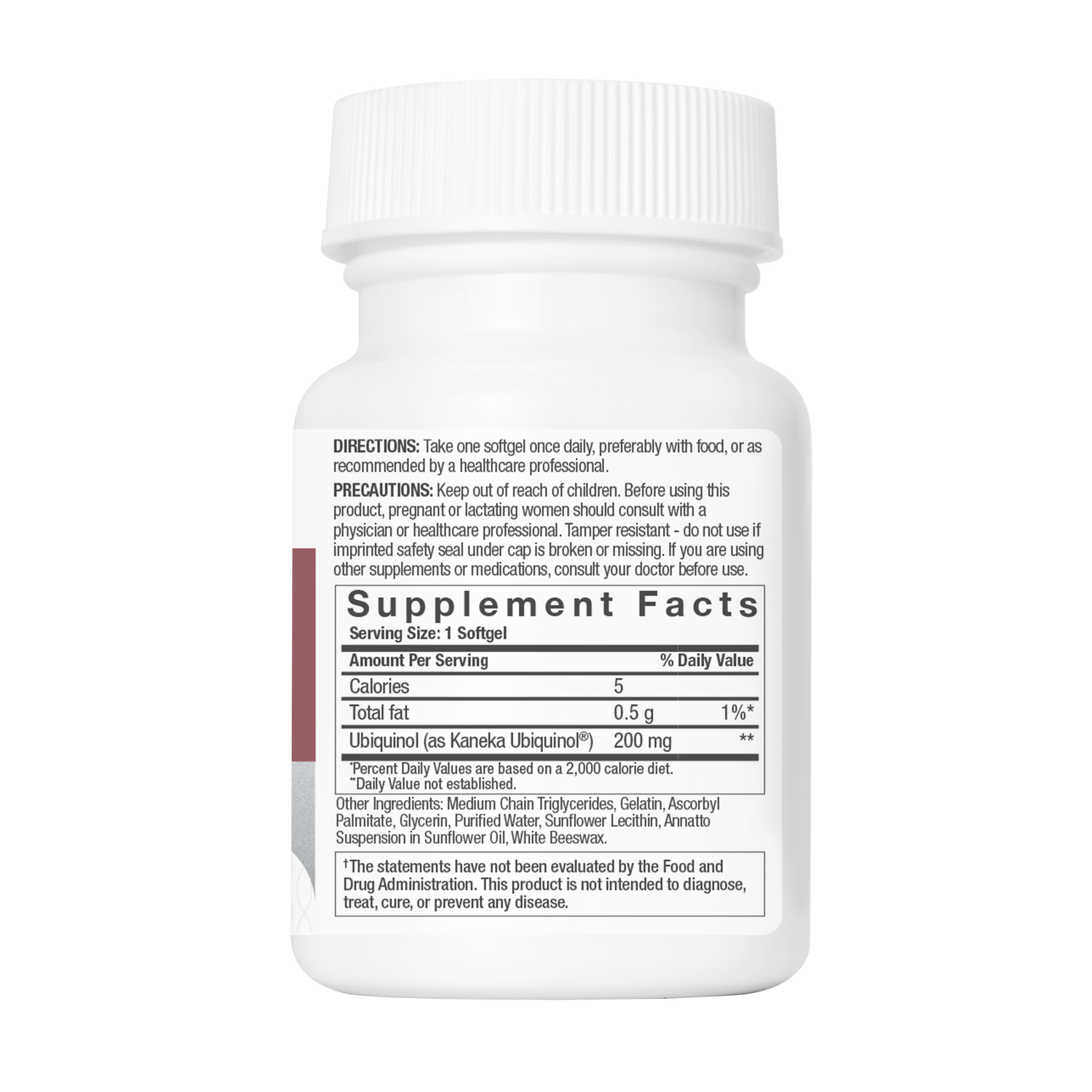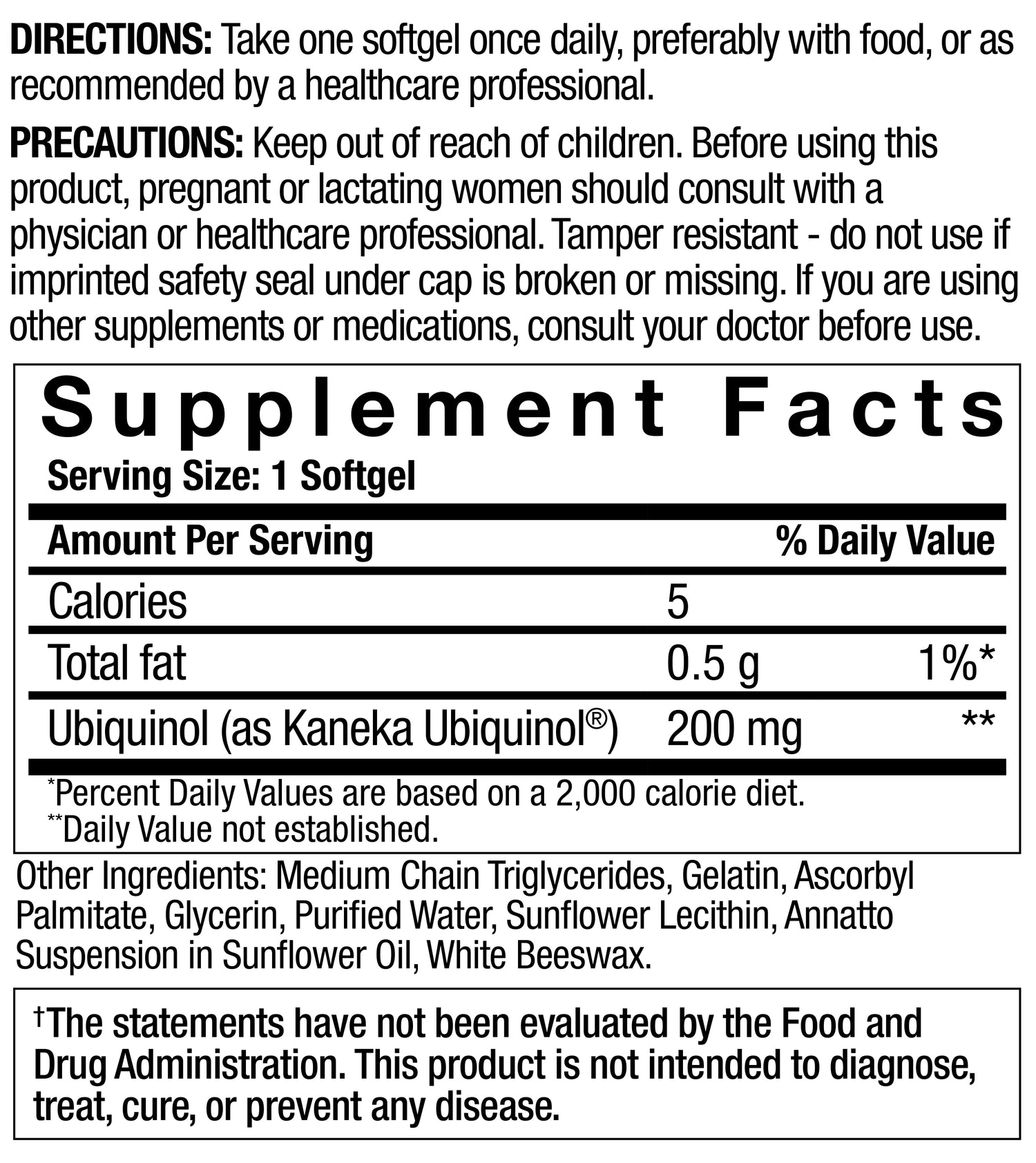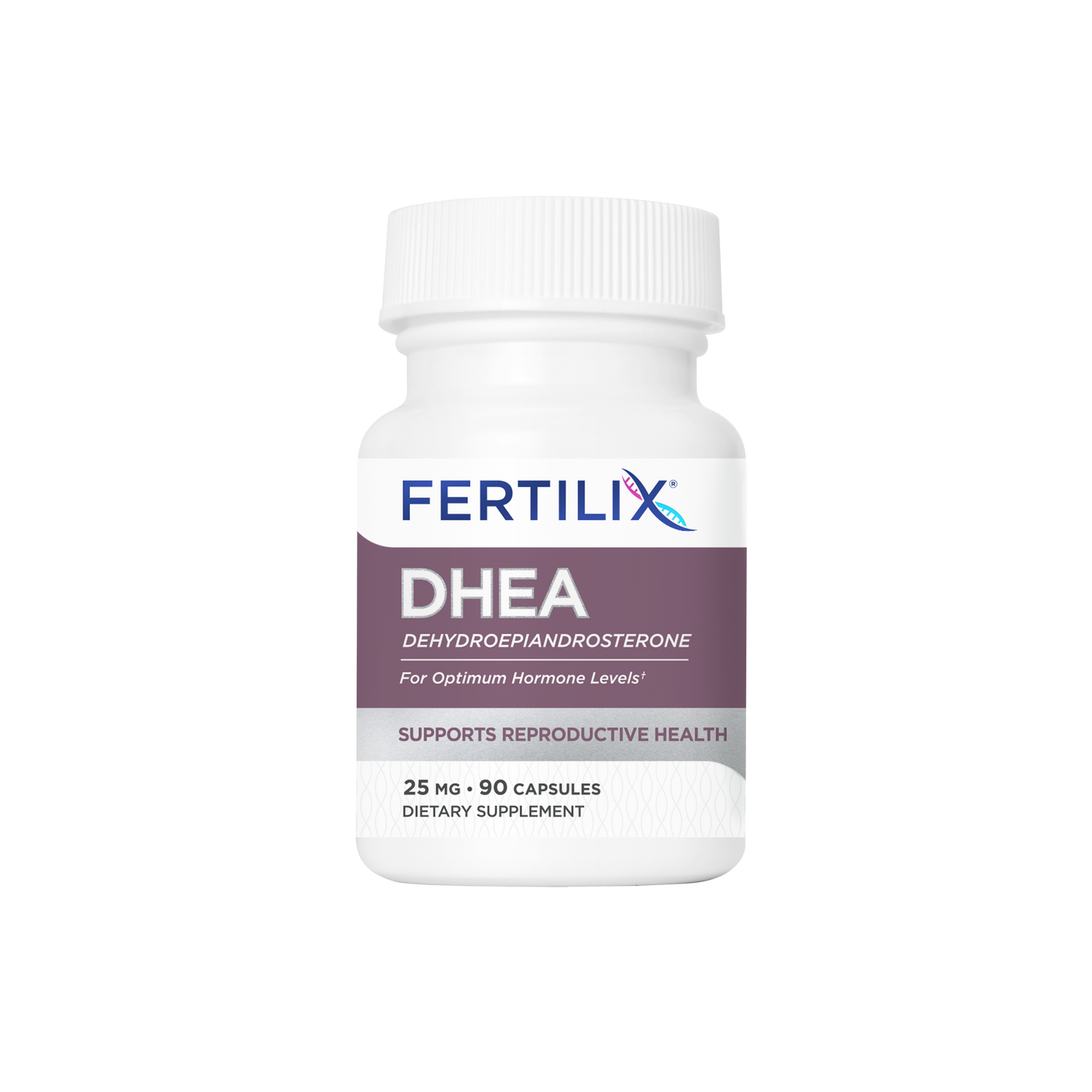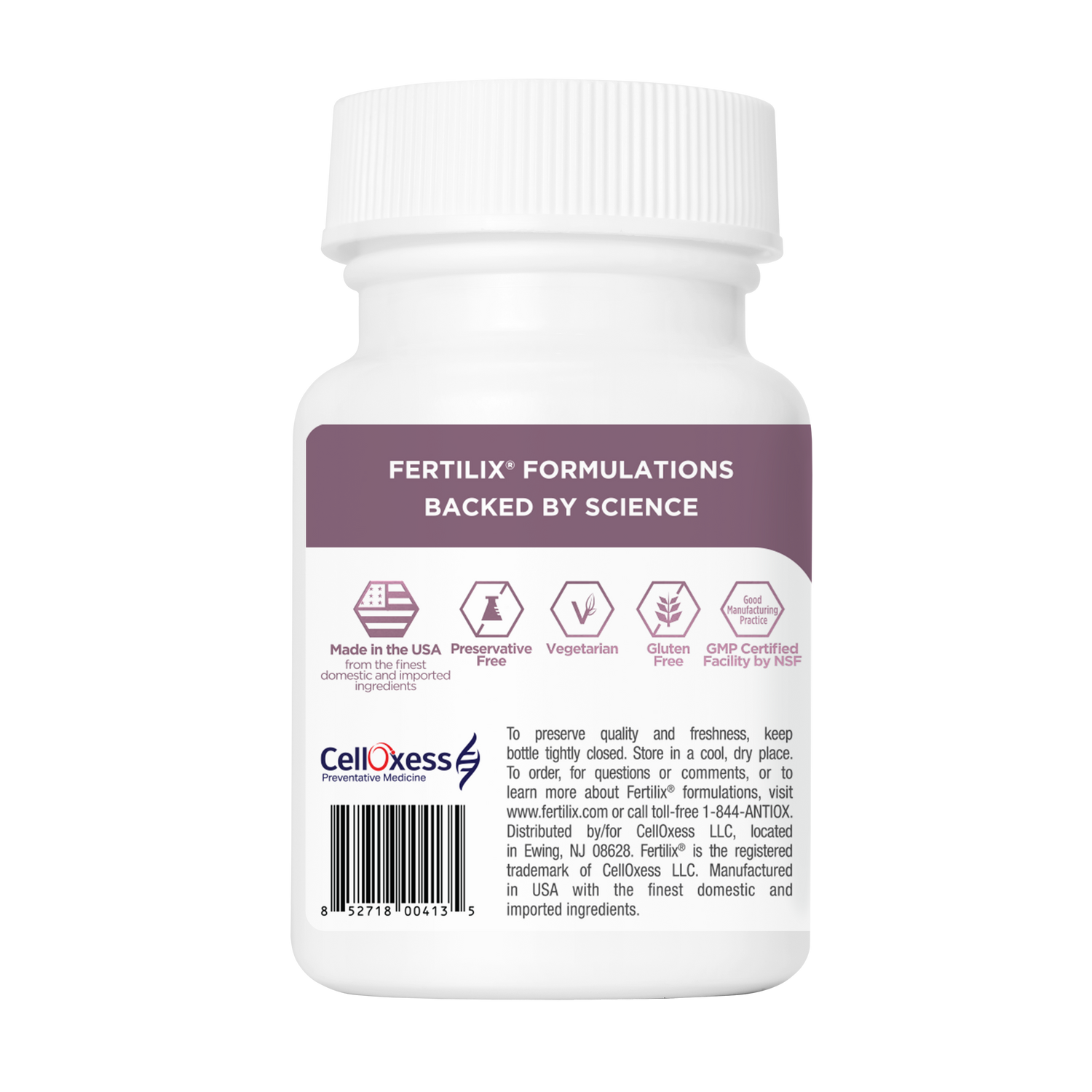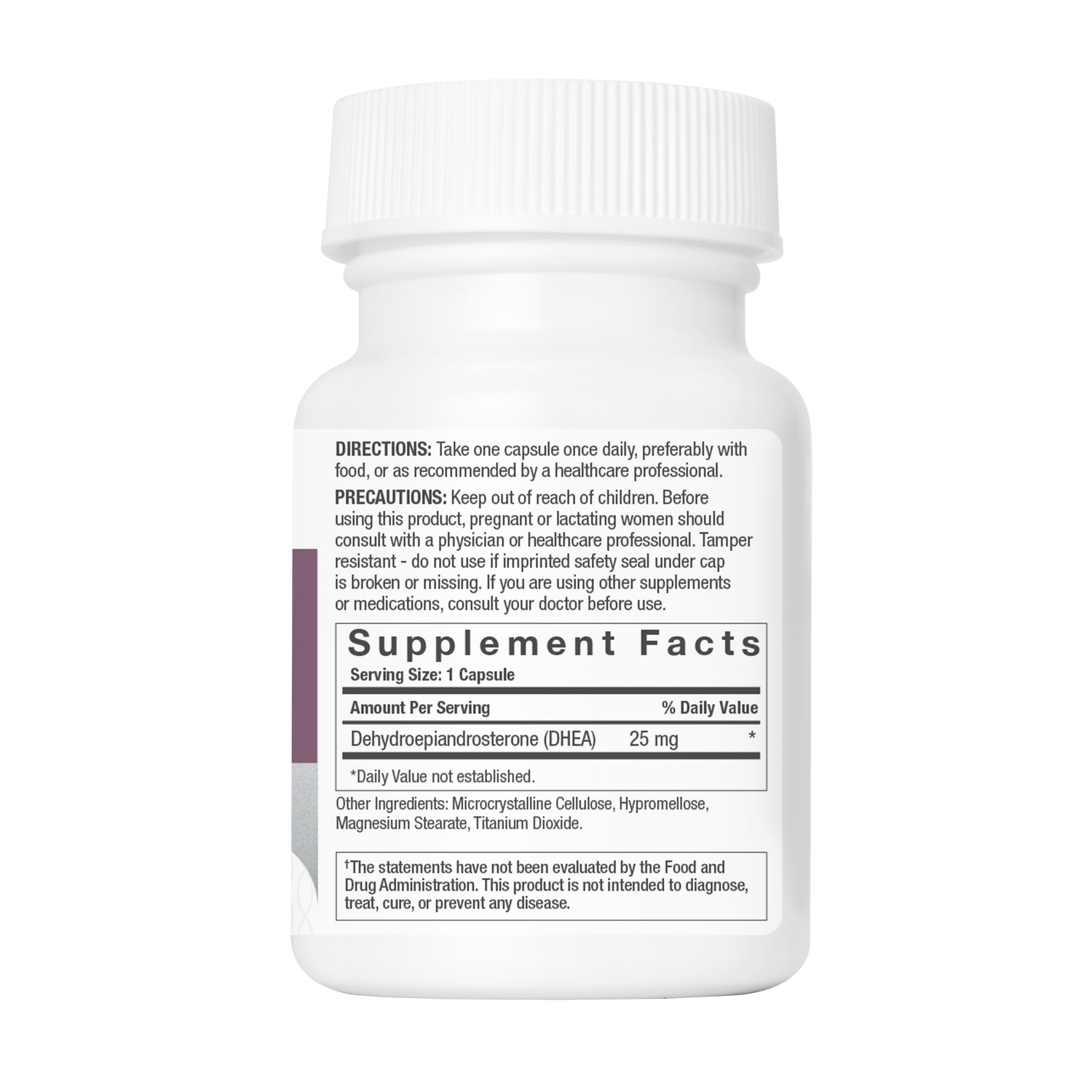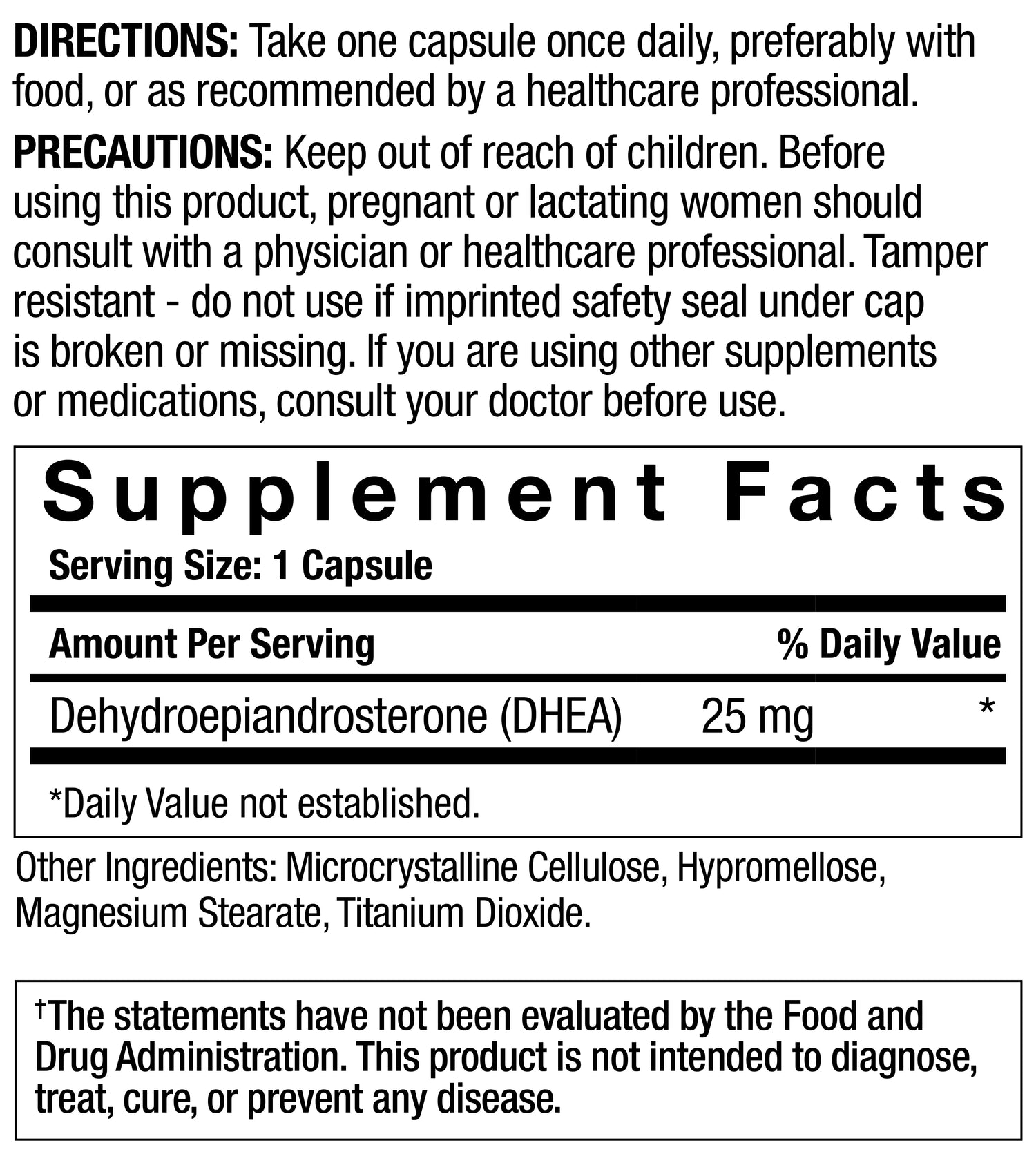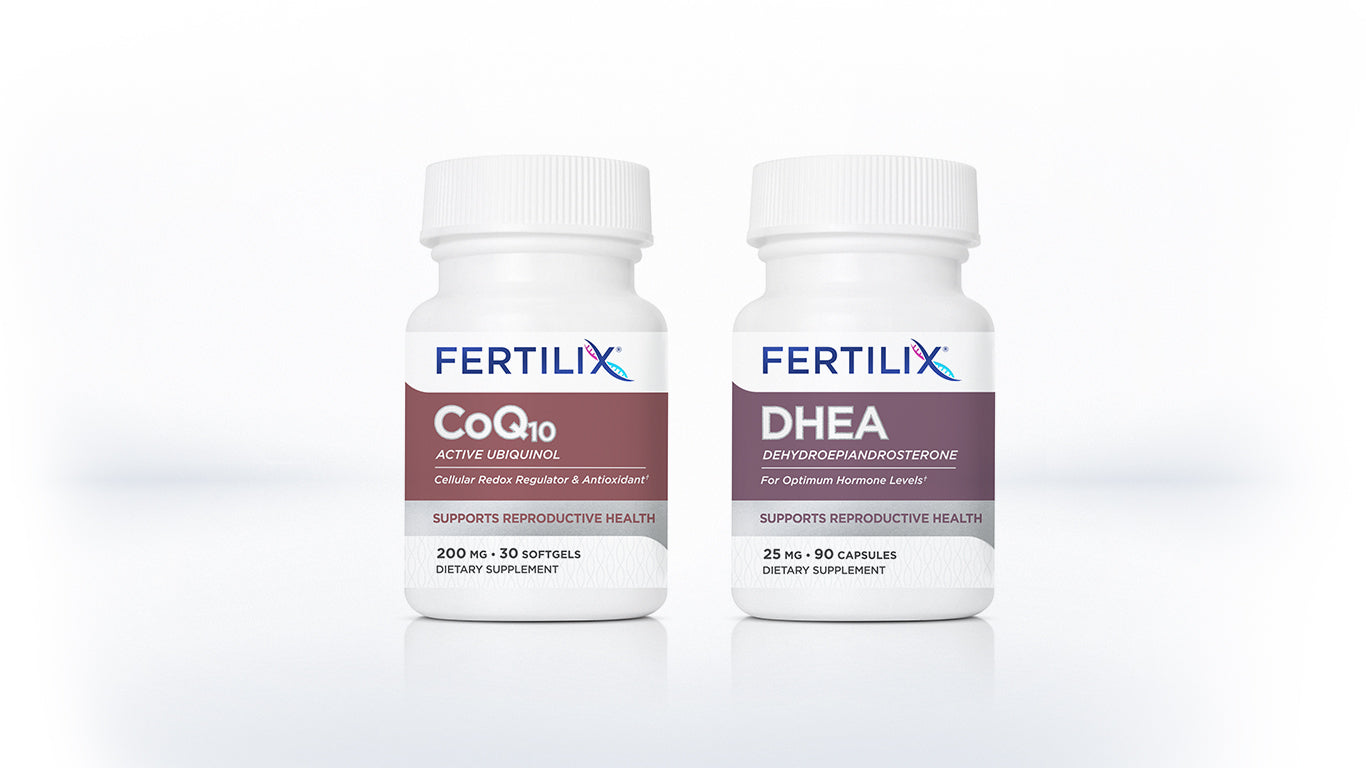
Complementary Products
Although not for everyone, these products may support ovarian health and egg quality in some women.*
Now available through the same Fertilix brand you know and trust.
Complementary fertility products: what is the evidence?
Many natural products have been evaluated for their efficacy in promoting female reproductive health. Of these, CoQ10 and DHEA are the most extensively studied in clinical trials. They have demonstrated positive outcomes in specific subgroups of women, such as those with diminished ovarian reserve.
Coenzyme Q10
Oral supplementation of CoQ10 in doses ranging from 200-1000mg per day in women with poor ovarian reserve or low-quality eggs has been shown to be beneficial. CoQ10 is a naturally occurring fat-soluble cofactor present in the inner mitochondrial membrane. It participates in aerobic cellular respiration which generates most of the energy in the human body. Additionally, CoQ10 operates as a potent antioxidant to protect cells from oxidative damage both directly, and indirectly, through the regeneration of Vitamin E.
In our bodies, CoQ10 exists in two chemically distinct redox states:
Fertilix CoQ10 uses only the natural, biologically active form (Ubiquinol) and is delivered in 200mg softgels. Although the majority of studies with CoQ10 utilized Ubiquinone, the superior oral bioavailability and antioxidant properties of Ubiquinol mean that lower doses can be administered, thereby minimizing potential side-effects with longterm use.
Take CoQ10 only if advised by your healthcare professional.
Coenzyme Q10 (Ubiquinol)
- Regular price
-
R$ 265,00 - Regular price
-
- Sale price
-
R$ 265,00
Share
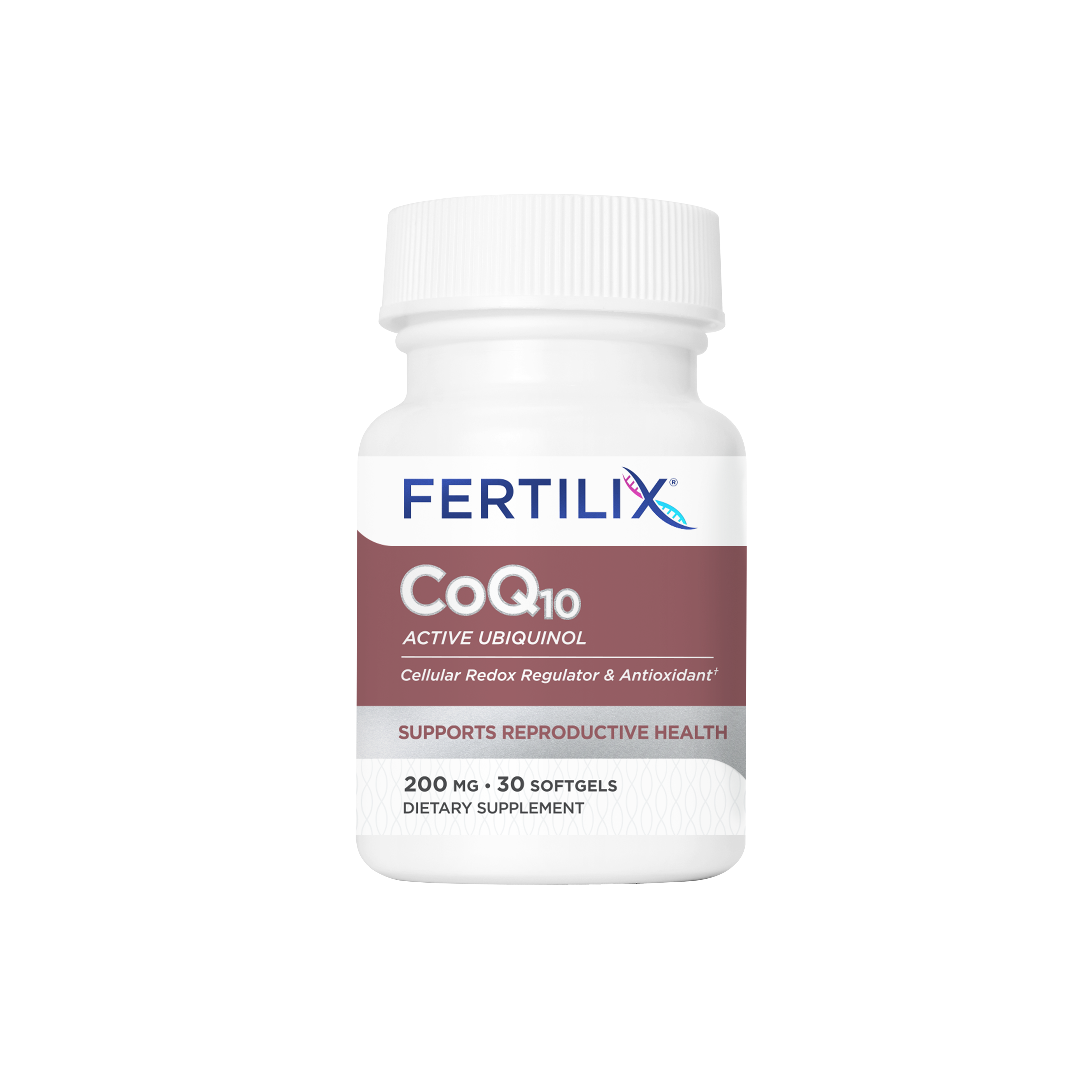
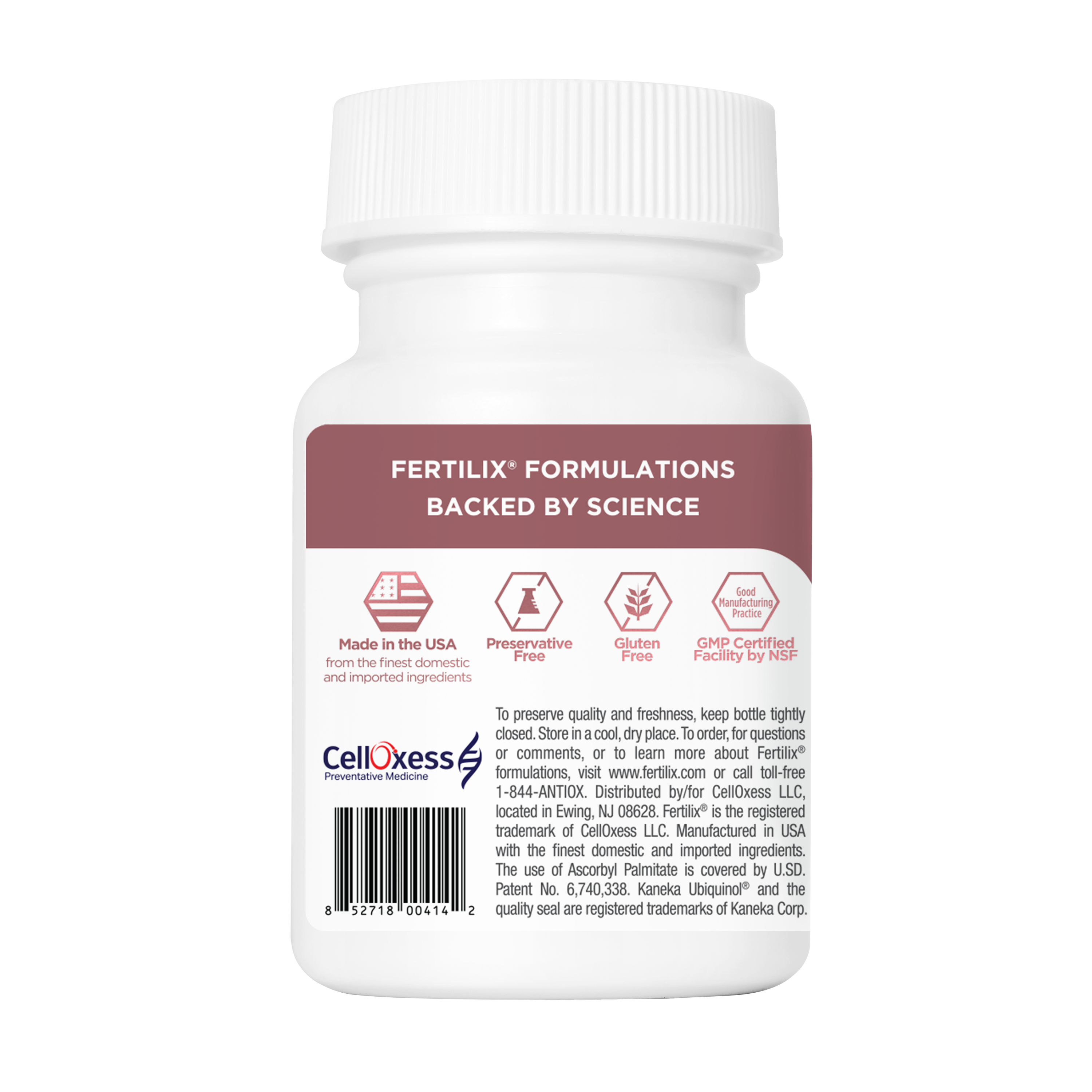
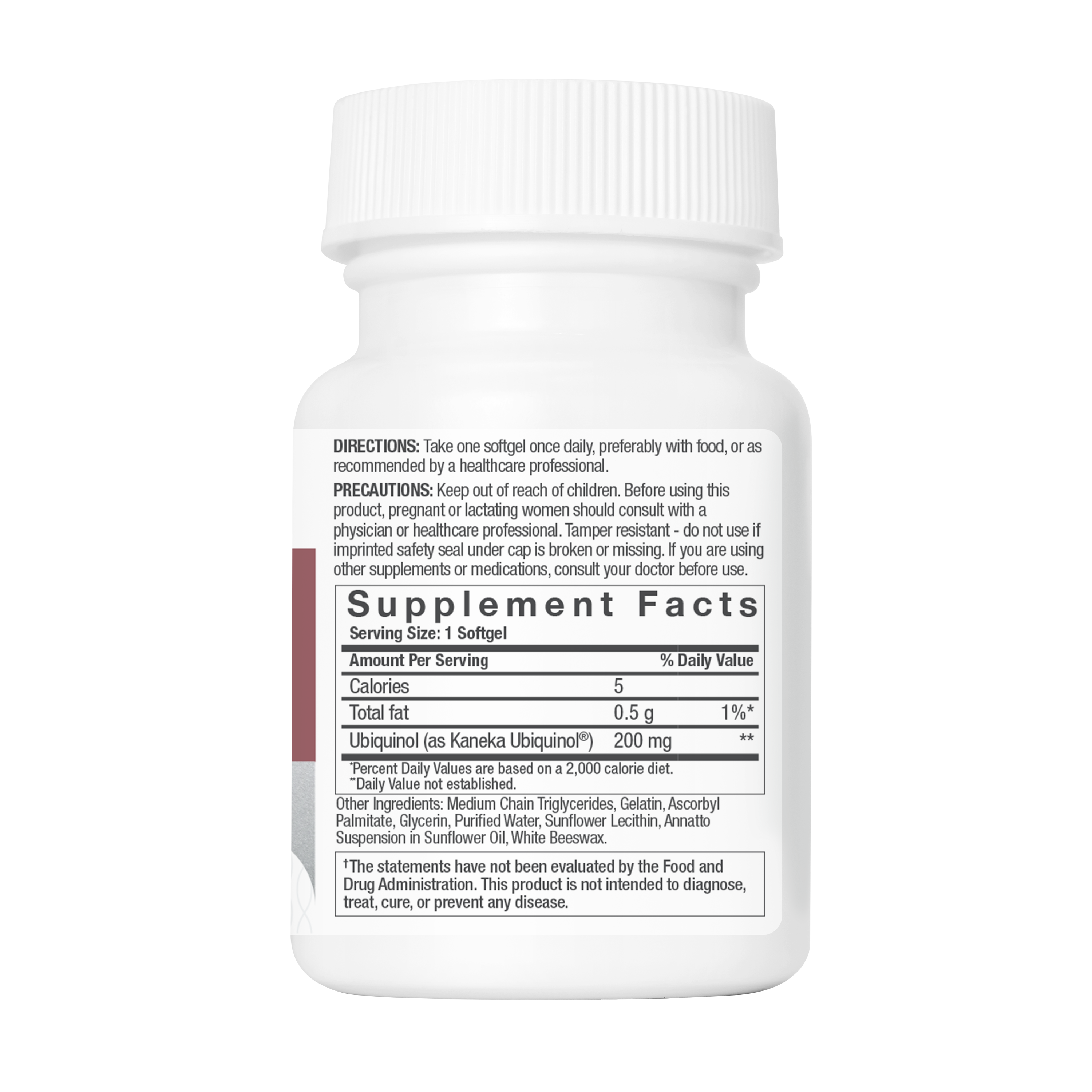
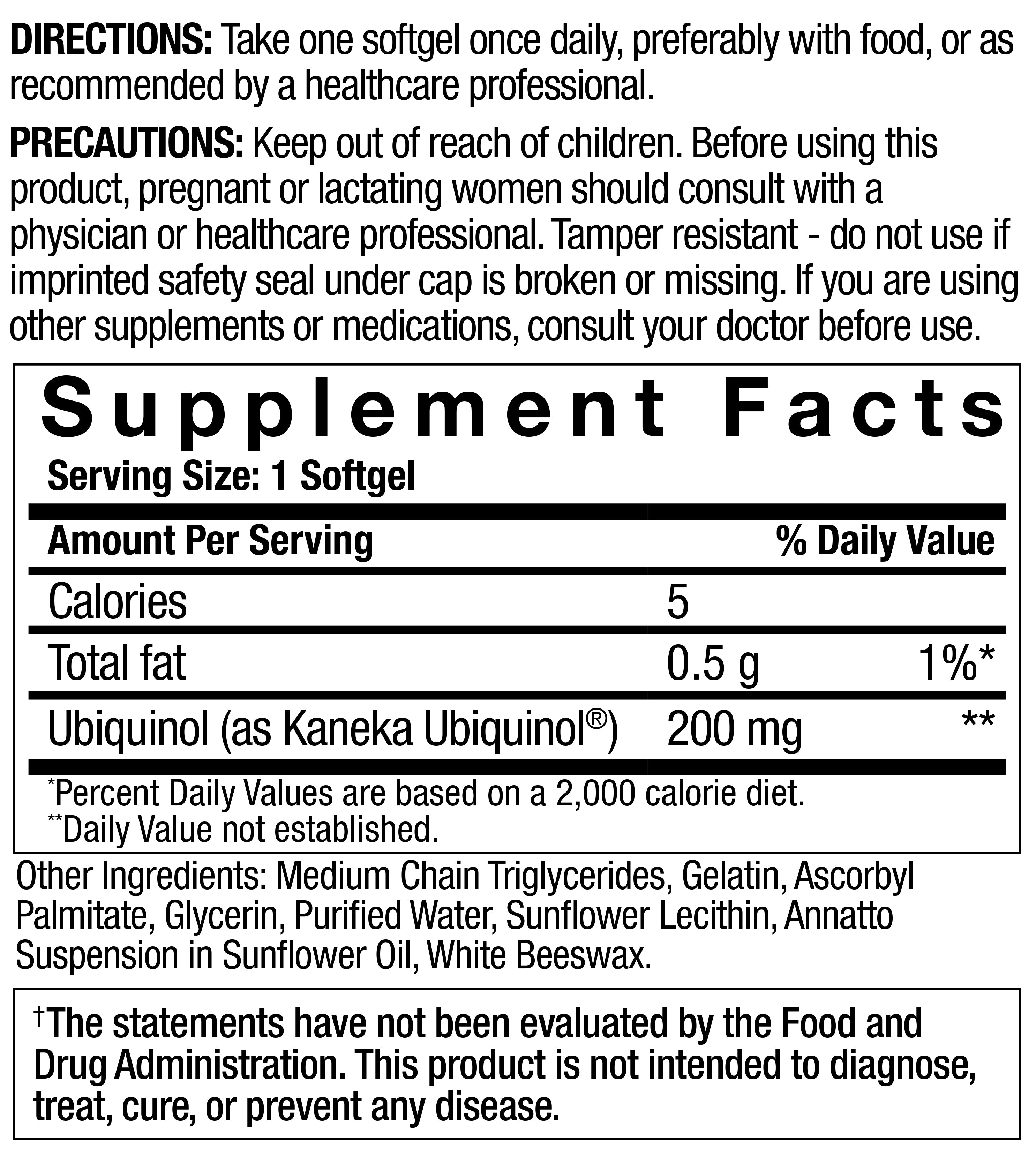
FAQ's
What is CoQ10?
Coenzyme Q10 (CoQ10) is a vitamin-like molecule made naturally by the body that is required for energy production within cells. The reduced form of CoQ10 is a powerful antioxidant protecting cellular components such as proteins, DNA, and membrane from damage by free radicals. Some studies indicate a drop of CoQ10 concentration in our bodies with age. The estimated daily intake of CoQ10 is estimated at 3–6 mg per day, derived primarily from meat, so supplementation of CoQ10 is suggested by doctors when promoting specific health conditions or deficiency is detected.
Should I consider CoQ10 to support my fertility?
Possibly, but seek your doctor’s advice first. In short, ovulation is an energy-intense process derived from energy producing structures in our cells known as mitochondria. Arguably, the human egg contains more mitochondria than the majority of cell types that make up our body. Since CoQ10 levels decline with age, older women wishing to get pregnant may benefit from CoQ10 supplementation. Recent clinical research shows CoQ10 supplementation may support egg quality and potentially lead to a better chance of achieving a healthy pregnancy. Women over 35 years of age trying to conceive may receive more benefits from supplementation than those younger.
Which form of CoQ10 is the best?
CoQ10 is manufactured mainly in two natural forms, known as Ubiquinone and Ubiquinol. Ubiquinone is a solid powder and much cheaper to manufacture than Ubiquinol which is an oil. Ubiquinone is poorly bioavailable relative to Ubiquinol. A small study with Ubiquinone in a novel emulsion form, called VESIsorb, is reported to have higher oral bioavailability than Ubiquinone but independent studies have not confirmed this finding. Fertilix CoQ10 only uses the natural active form Ubiquinol demonstrated in several clinical studies to have superior oral bioavailability than Ubiquinone.
Is CoQ10 FDA approved for any health conditions?
No, CoQ10 is not approved by the U.S. Food and Drug Administration (FDA) for the treatment of any medical condition.
Are there any safety concerns or side-effects with CoQ10?
CoQ10 is a natural molecule present in a variety of foods, so as a dietary ingredient, is considered safe. However, long-term use of supplemental CoQ10 at high doses must only be recommended by your doctor. Some people may experience mild side effects including stomach upset, loss of appetite, nausea, vomiting, and diarrhea. It can cause allergic skin rashes in some people.
Does CoQ10 interact with prescription medications?
Coenzyme Q-10 may decrease blood pressure so your doctor may not recommend it if you are on medications for high blood pressure or drugs that affect blood clotting. As a potent antioxidant, CoQ10 may also decrease the effectiveness of some medications used for cancers, so be sure to let your doctor know if you are taking it.
Can I take CoQ10 in addition to Fertilix Prenatal Products?
Yes, Fertilix prenatals use little or no CoQ10 so Fertilix CoQ10 may be taken alongside the prenatals before and while pregnant, but not during the lactation period.
How often and for how long should I take Fertilix CoQ10?
Follow your doctor’s advice for the duration and frequency of use for this product. In general, women wishing to improve ovarian health and egg quality, should take Fertilix CoQ10 once daily, preferably after dinner. Start CoQ10 at least 3 months before trying to conceive and continue while pregnant.
Dehydroepiandrosterone (DHEA)
DHEA is a steroid prohormone produced in various glands in our body. It is pivotal in the biosynthesis of androgen and estrogen sex hormones, which may be helpful for female fertility.
Oral administration of DHEA in women with low ovarian reserve has shown improvement, but women with normal ovarian health will not further benefit from supplementation. DHEA levels in the body naturally peak in early adulthood and fall with age so older women are more likely to benefit.
DHEA is short-lived in the body, transforming to its sulphate from (DHEA-S) in about 30 minutes, which in turn undergoes enzymatic conversion back to DHEA thus serving as a circulating reservoir for DHEA. The elimination half-life of DHEA-S is short (7-10 hours), therefore, 3 daily doses of DHEA are usually recommended to ensure adequate circulating levels.
Fertilix DHEA comes in vegetarian capsules in 25mg doses, and is normally recommended to be taken 3x daily.
Take DHEA only if advised by your healthcare professional.
DHEA
- Regular price
-
R$ 206,00 - Regular price
-
- Sale price
-
R$ 206,00
Share
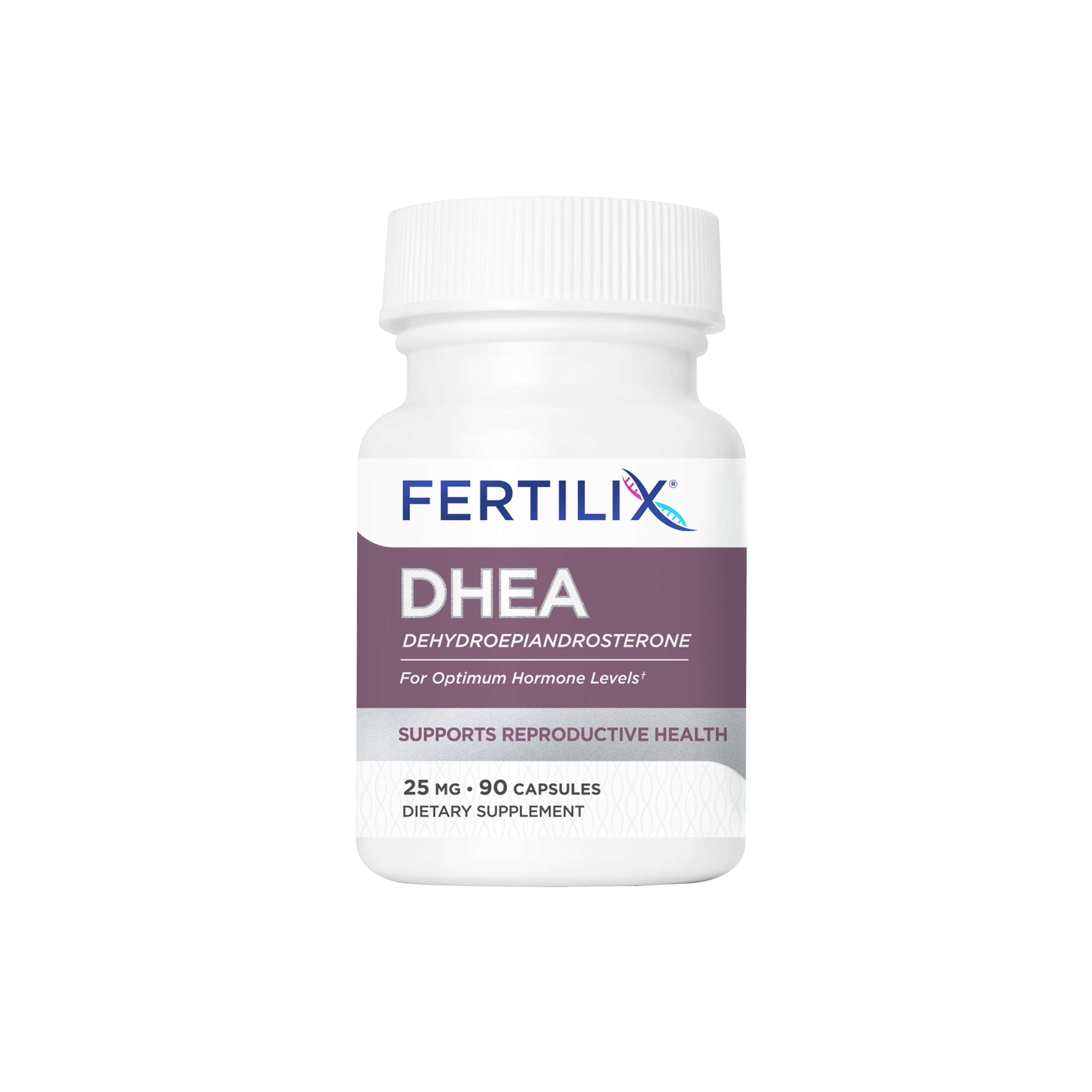
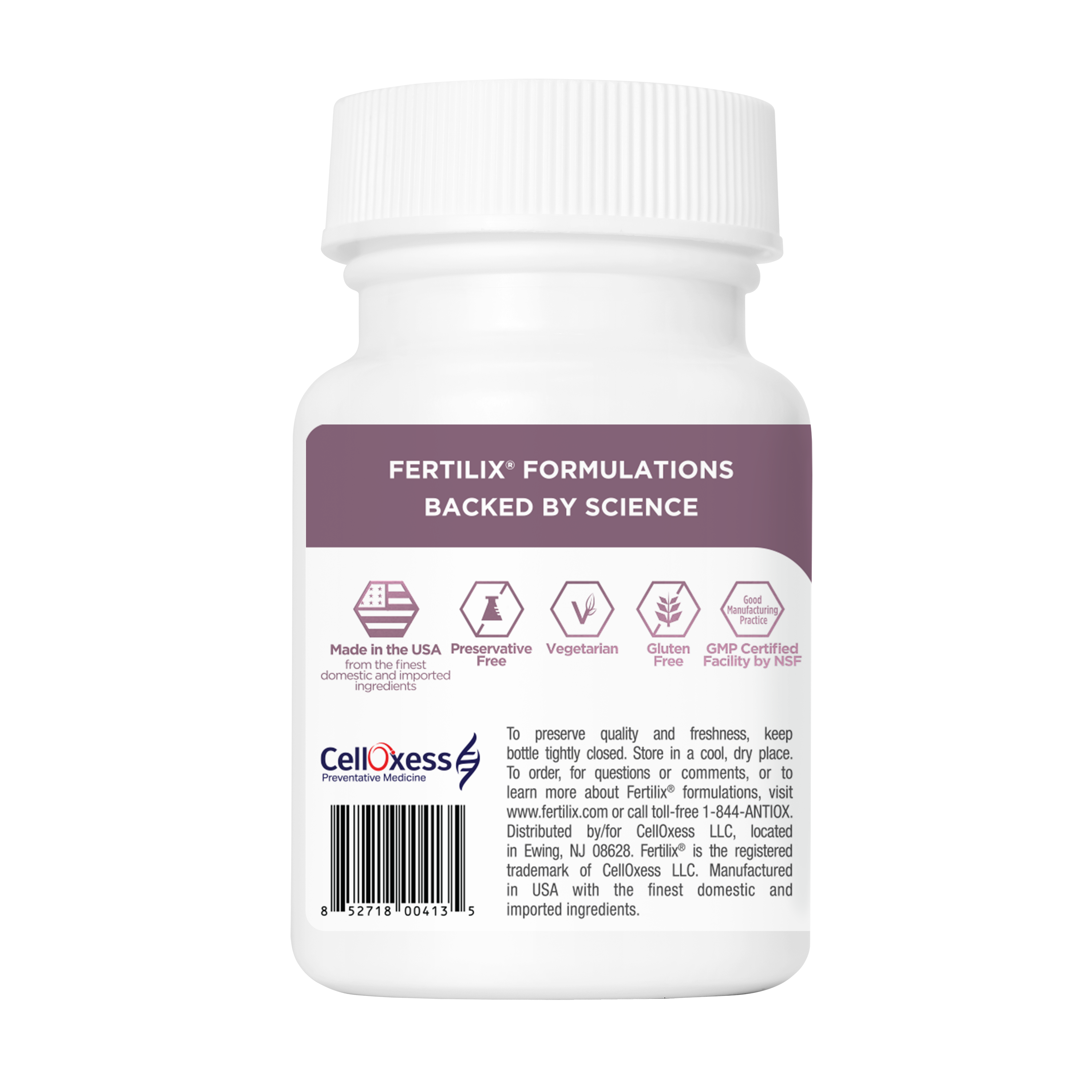
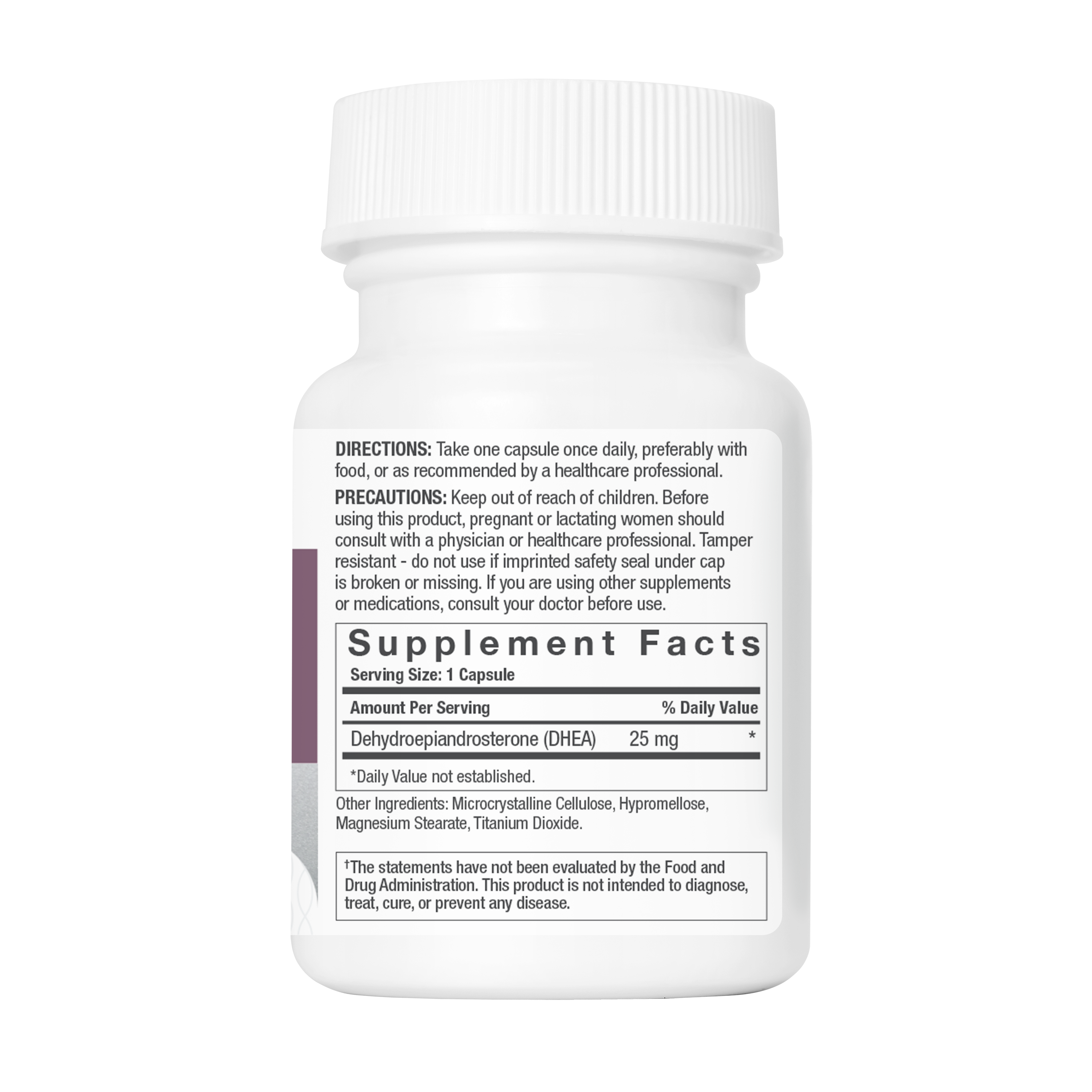
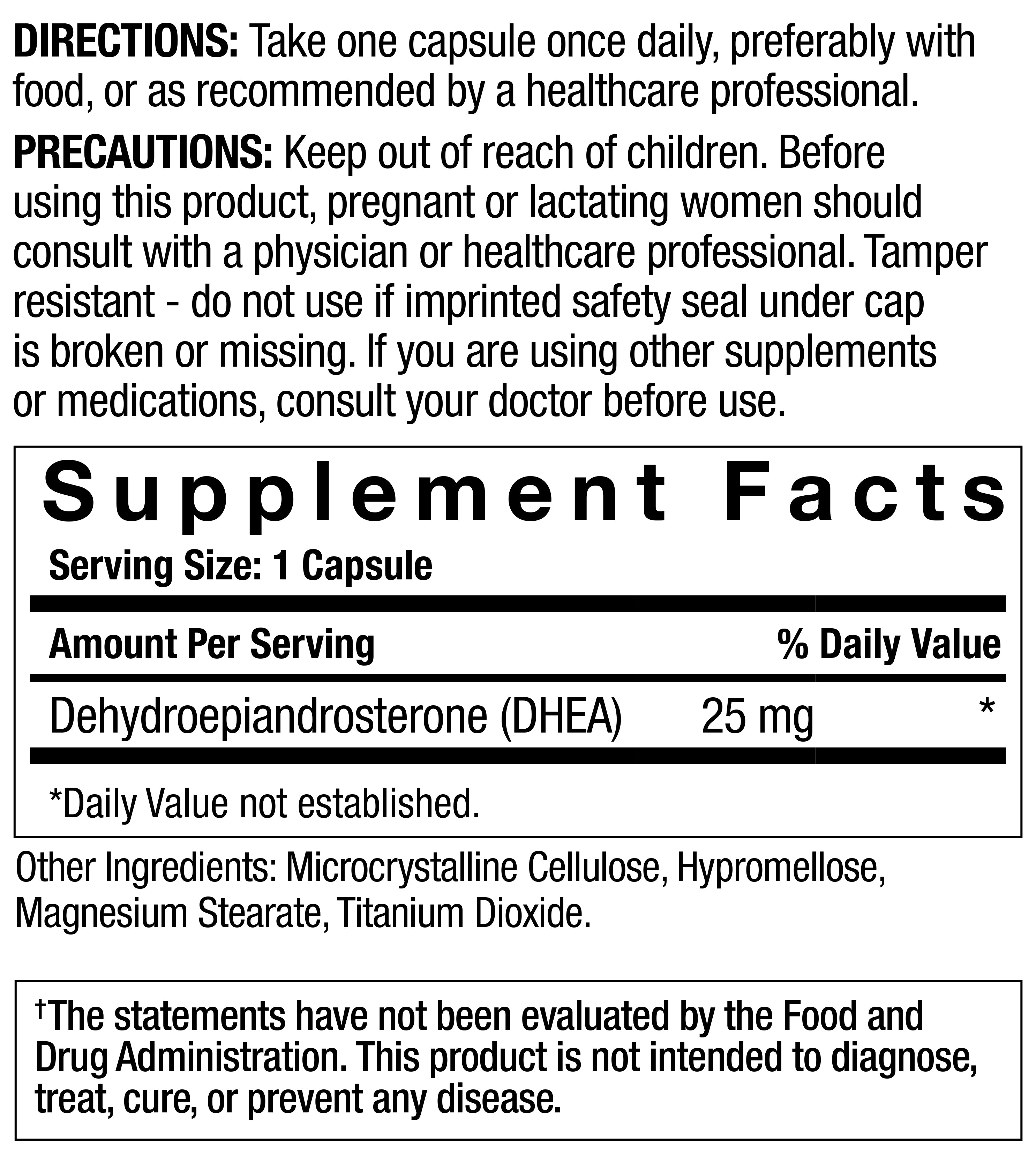
FAQ's
What is DHEA?
DHEA (dehydroepiandrosterone) is a steroid hormone produced largely by the adrenal glands. Most of the DHEA in the bloodstream circulates in the form of a derivative, DHEA sulfate or DHEA-S. The intestines also convert DHEA supplements into DHEAS before the hormone enters the blood. In our bodies, DHEA converts it to a wide array of androgens and estrogens, including the hormones testosterone and estradiol.
How does DHEA work?
DHEA is a "parent hormone" which converts to a hormone called androstenedione. Androstenedione is then modified into the major male and female hormones. DHEA levels in the body begin to decrease after age 30, occurring more quickly in women than men.
Should I consider DHEA for female fertility?
Yes, but only if your doctor recommends it. Supplementation with DHEA may be able to correct a hormone imbalance. Several studies with DHEA supported improved ovarian health and egg quality in a cohort of women trying to conceive.*
Are there safety concerns with DHEA supplements?
DHEA is generally regarded as safe taken by mouth for up to 24 months. However, long-term use of doses of 100mg or more is not recommended. Side-effects including acne, hair loss, stomach upset, fatigue, nasal congestion, headache, insomnia and high blood pressure have been reported. Some women can have changes in menstrual cycle, excess facial hair growth, and develop a deeper voice after taking DHEA.
Who should not take DHEA?
-This product is not recommended for men.
-Women under the age of 18.
-Women who are pregnant or nursing, have endometriosis, or have polycystic ovarian syndrome (PCOS).
-Any person with liver problems.
-Any person with hormone-sensitive conditions such as breast cancer, uterine cancer, ovarian cancer, endometriosis, or uterine fibroids.
-Individuals with diabetes unless prescribed by their health care provider.
-Any person with high cholesterol.
-Women with depression and mood disorders.
Does DHEA interact with prescription medications?
Yes. DHEA is known to interact with many types of medications so you must consult with your doctor before taking it. Ask your doctor about the “risk-to-benefit” profile of taking DHEA with your medication to be sure it is safe to proceed. In general, DHEA is known to have minor to moderate interactions with the following drugs or classes of medications: Anastrozole, Exemestane, Fulvestrant, Insulin, Letrozole, as well as medications changed by the liver, anti-depressants, medications that slow blood clotting and anti-inflammatory agents.
Can I take DHEA in addition to Fertilix Prenatal Products?
Seek your doctor’s advice if you intend to take DHEA with any supplements. DHEA may be taken with Fertilix prenatals before conception has occurred but should be discontinued as soon as pregnancy has been established. Women should only continue with their prenatal supplement throughout pregnancy.
How often and for how long should I take Fertilix DHEA?
Follow your doctor’s advice for the duration and frequency of using this product. In general, women wishing to improve ovarian health and egg quality, should take Fertilix DHEA 3 times a day, preferably after meals, for at least 3 months before trying to conceive. Stop taking this supplement as soon as pregnancy is established.
Will DHEA affect my weight, mood, etc.?
Some studies suggest modest loss of abdominal fat and an increase in strength and lean muscle mass when combined with resistance exercise in the elderly. Other studies suggest benefits in sexual, memory, mood and cognitive function.
prepare together with confidence
Explore all available products to support his & her optimal reproductive health





